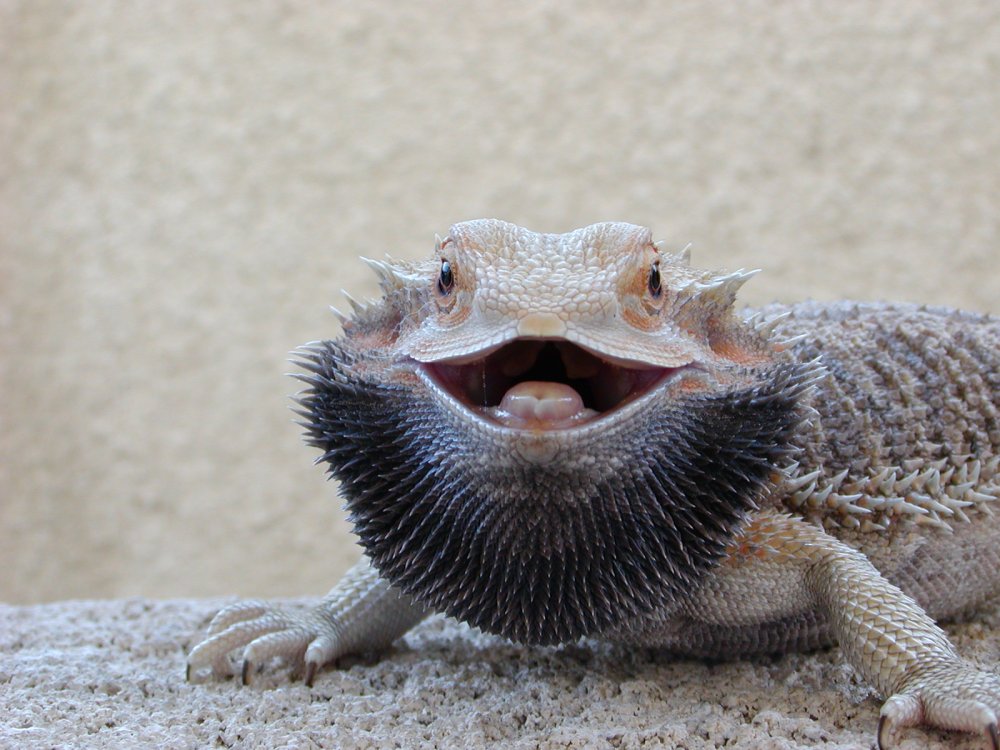10 Signs That Your Bearded Dragon is Healthy (And What to Do if They Aren't)
Introduction
Bearded dragons are popular pets for beginner reptile enthusiasts. These fascinating creatures come in a variety of colors and sizes, and have unique personalities that can make them quite entertaining to watch.
However, like any living creature, bearded dragons require proper care and attention in order to thrive. One of the most important aspects of their care is ensuring that they are healthy. In this blog post, we will explore the top 10 signs that your bearded dragon is healthy and provide tips on what to do if you notice any signs of illness.
1. Active and Alert
One of the best indications that your bearded dragon is healthy is that they are active and alert. Healthy bearded dragons are not lethargic and will often spend time exploring their environment, basking in their heat source, or chasing after prey (if they are fed live insects).

If your bearded dragon appears sluggish or inactive, this may be a sign of illness. It’s important to monitor their behavior and contact a veterinarian if you notice any changes in their activity level.
2. Good Appetite
Healthy bearded dragons have a good appetite and will eagerly eat their food. They have a varied diet that includes a combination of insects, vegetables, and fruits. An unhealthy bearded dragon may refuse to eat or show little interest in food.

If you notice that your bearded dragon is not eating, this may be a sign of illness. It’s important to monitor their food intake and consult with a veterinarian if you have any concerns.
3. Clear Eyes
Healthy bearded dragons have clear and bright eyes. They should not be swollen, cloudy, or have any discharge. If you notice that your bearded dragon’s eyes are not clear, it may be a sign of infection or illness.
If you notice any changes in your bearded dragon’s eyes, it’s important to consult with a veterinarian as soon as possible.
4. Healthy Skin
Healthy bearded dragons have smooth and shiny skin. They should not have any scales that are lifted or discolored. Additionally, their skin should not be flaky or have any patches where the scales are missing.
If you notice any changes in your bearded dragon’s skin, it’s important to consult with a veterinarian as soon as possible. Skin problems can be a sign of illness or infection.
5. Healthy Teeth and Mouth
Healthy bearded dragons have healthy teeth and a clean mouth. Their teeth should be white, and there should not be any signs of mouth rot or infection.

If you notice any signs of mouth rot or infection, it’s important to consult with a veterinarian as soon as possible. These conditions can be very serious and may require immediate treatment.
6. Regular Bowel Movements
Healthy bearded dragons have regular bowel movements. Their stool should be well-formed and not runny or discolored. Additionally, they should not have any signs of diarrhea or constipation.
If you notice any changes in your bearded dragon’s bowel movements, it’s important to consult with a veterinarian as soon as possible. Digestive problems can be a sign of illness, and may require medical attention.
7. Good Respiratory Health
Healthy bearded dragons have good respiratory health and do not have any signs of respiratory distress. They should not have any wheezing, coughing, or discharge from their nose or mouth.

If you notice any signs of respiratory distress, it’s important to consult with a veterinarian as soon as possible. Respiratory problems can be very serious and may require immediate treatment.
8. Proper Temperature and Humidity
Healthy bearded dragons require proper temperature and humidity levels in their environment. They should have a basking spot that is between 95-105°F and a cooler area that is around 75-85°F.

Additionally, their enclosure should have a humidity level between 30-40%. If the humidity level is too high or too low, it can lead to health problems for your bearded dragon.
9. Proper Lighting
Healthy bearded dragons require proper lighting in order to maintain their health. They require a UVB light source that provides the proper spectrum of UVB light for their needs.

If they do not receive the proper amount of UVB light, they may develop health problems related to calcium absorption and bone health. Consult with a veterinarian or reptile specialist to ensure that you are providing the right lighting for your bearded dragon.
10. No Signs of Stress
Healthy bearded dragons do not show signs of stress. They should not be overly aggressive, skittish, or otherwise display behavior that is not typical for their species.

If you notice that your bearded dragon is displaying signs of stress, it may be a sign that their environmental or social needs are not being met. Consult with a veterinarian or reptile specialist for advice on how to improve their living conditions.
Conclusion
In conclusion, bearded dragons can make wonderful pets for beginner reptile enthusiasts. However, in order to ensure that your bearded dragon remains healthy, you must be able to recognize the signs of illness or stress.
By following the guidelines outlined in this blog post, you can help keep your bearded dragon healthy and happy for many years to come.
If you have any concerns about your bearded dragon’s health, it’s important to consult with a veterinarian or reptile specialist as soon as possible.
